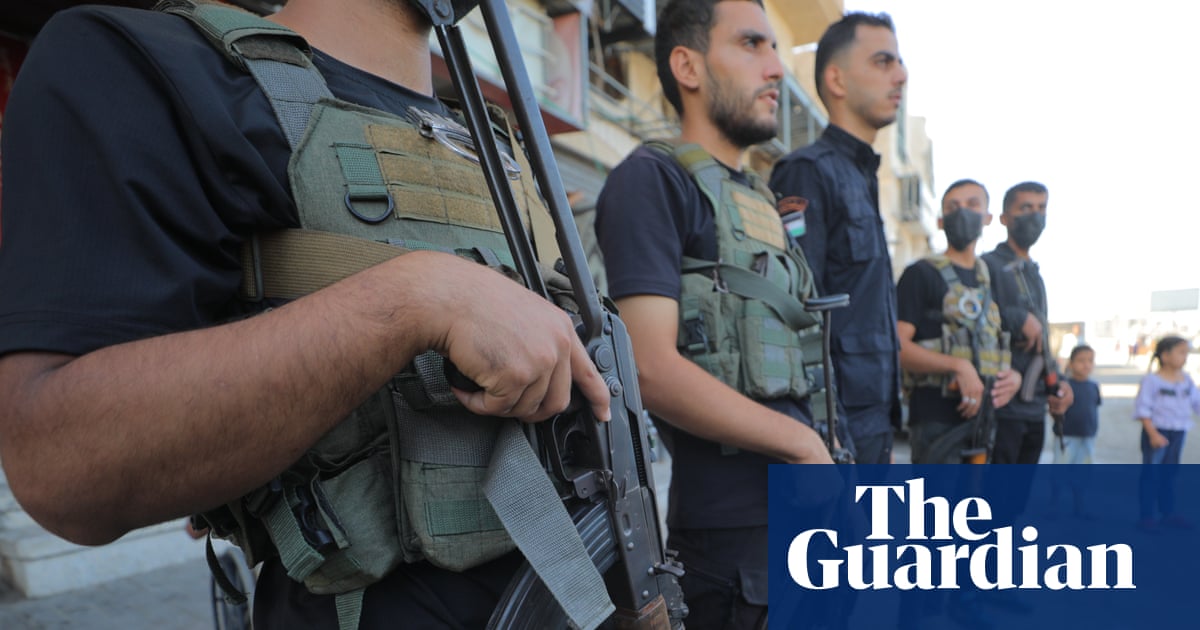
"Throughout Israel's two-year war in Gaza, aid officials working in the territory avoided naming Hamas in conversations they suspected might be intercepted, instead referring to the militant Islamist group as the de facto authority. This careful euphemism for Hamas, which violently seized power in 2007, captured an important truth. Though the group was a less obvious presence in the last months of the conflict, in the absence of any alternative, it remained the closest the increasingly devastated territory had to a ruler."
"Its administrative officials continued to be key interlocutors for humanitarian organisations. Its armed police units hunted looters, armed gangs, clans who challenged its authority, the more outspoken critics among ordinary Palestinians and militia groups backed by Israel. This campaign now appears to have become a priority for Hamas and it requires weapons, which Hamas is supposed to relinquish if the current ceasefire deal reached last week is to harden into anything resembling a durable peace."
"For Hamas, there are now new priorities, and they do not involve giving up guns. Senior officials have already made this clear, as have some involved in the tortuous negotiations under way on the second phase of Donald Trump's 20-point plan for peace. Instead, the group has moved fast to assert its authority across the 47% of Gaza to which the population of 2.3 million hungry, weak and traumatised people are confined now that the Israeli military has withdrawn from its previous positions."
"In recent days, there have been skirmishes, shootings and a public execution of seven unidentified traitors and collaborators in Zeitoun, a ruined neighbourhood to the east of Gaza City. Though the group may not be able to deter enemies, rivals and ordinary criminals through the certainty of punishment, it clearly believes it can do so through spectacular, terrifying armed violence. This may appal onlookers, but not necessarily all of those whose lives have been blighted"
Aid officials in Gaza avoided naming Hamas in potentially intercepted communications, instead calling it the de facto authority. Hamas, which seized power in 2007, remained the closest entity to a ruler despite a reduced public presence. Its administrative officials continued to serve as interlocutors for humanitarian organisations while armed police units hunted looters, gangs, and critics. Hamas now prioritises a campaign requiring weapons that it is supposed to relinquish under a ceasefire deal. Senior officials and negotiators signal refusal to disarm. The group has rapidly asserted control over 47% of Gaza, with skirmishes, shootings and public executions reported.
Read at www.theguardian.com
Unable to calculate read time
Collection
[
|
...
]